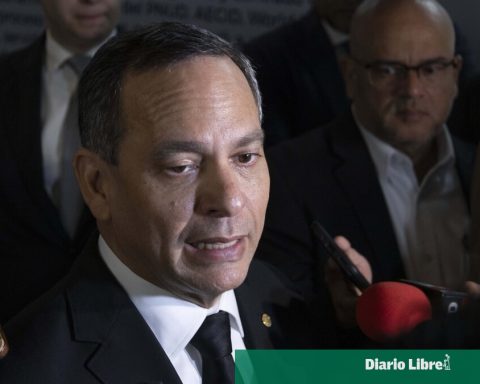Nine directors of the Central American Bank for Economic Integration (CABEI), wrote a letter addressed to the governors of that institution, to express their “utmost concern about the Bank’s administrative and financial parameters, and the serious concerns generated about its proper governance.”
The letter is signed by Maximiliano Ricardo Alonso, director for Argentina, as well as his colleagues Jorge Mariné Brandi (Spain); Julio Luis Jacome Arana (Colombia); Hugo Martínez Rebulla (Guatemala); Ricardo Trejos Lalli (Costa Rica); Catherine Chang Carías (Honduras); Luis Rodríguez Villacorta (El Salvador); Jorge Saggiante (Mexico) and Carlos Arosemena Argüelles, (Panama).
CONFIDENTIAL spoke with two sources who know the internal functioning of the Bank, who interpreted the content of the letter as a frontal questioning of the management of the Bank’s executive president, the Honduran Dante Mossi.
“That is a fine operation to enclose the CEO. It is a sign that there is great discomfort with the way the Bank is being managed, ”said one of the sources.
“The accusation is of having misled the Board … by permanently showing and affirming that the Bank was going for the better, ”said the other source.
“This, plus split voting with respect to the loan for Nicaragua, and the change of government in Hondurass… it must be remembered that Mossi has been very active, giving resources to the outgoing president of Honduras, Juan Orlando Hernández, who used them to proselytize in favor of the National Party, and that is something that the Free Party, which won the elections, he is very clear ”, indicate the sources.
From there, the perception is that “a perfect storm has been created for Mossi, and that this will cost him his job, and soon”, especially when considering that “the first direct accusation is deception, since communication with the Board is done through Dante: he controls everything and strain everything, ”they added.
Everything was fine … until they found out the truth
The letter sent by the Board of Directors refers to “the lack of transparency” in the information presented by the Administration, and that they only found out about it “given the hasty way in which the deterioration of the Risk Adjusted Capital Index has been exposed (RAC) “.
The RAC is a An index used to assess a financial institution’s ability to continue operating in the event of an economic downturn. Although in the case of CABEI it is considered that its value must be greater than 15, the RAC has fallen systematically, from 17 in December 2019, to 16 in December 2020, from where it has decreased to stay at 13.4 at this time.
The RAC is not the only indicator that shows a constant deterioration, since the Financial Profitability Index has plummeted from the 7.42% that it marked in 2018, to 2.68% in October 2021.
To this is added that “the Net Financial Income in relation to Productive Assets, went from 2.37% in 2018 to 1.83% at the end of October 2019, and the profit went from 223.5 million dollars in 2018, to report 83.6 million as of October 2021 ”, which could lead to“ an eventual fall in the financial strength that the institution had been counting on in the last decade ”, the directors point out.
The letter shows that the senders are not just talking about a deterioration in the Bank’s financial situation, but about a systematic attempt to present them with alternative data.
“The reports submitted by the Administration to the Board of Directors showed positive results month after month. However, now it is received with surprise, the communication that the indicators are adverse to the institutional rating, transferring the responsibility of the generated risks, to the sovereign concentration and other reasons that could be anticipated and managed from previous periods ”, they detail.
Don’t sacrifice countries
“The Administration has insisted on various practices, the purpose of which is to prevent the availability of the necessary inputs so that the functions that correspond to the directors can be adequately performed, not only in terms of decisions corresponding to the strategy of the institution and operations, but rather the supervision of the activity of the Administration ”, they reiterate in the letter.
The signatories remind the governors that “the Administration very recently drew up an action plan for the regularization of the RAC; however, this did not meet the expectations of the directors, since it restricted timely support to the countries, ”they insisted.
“This claim – and accusation – is because Dante wants to fix this by affecting the countries. The directors are upset that Dante wants to reduce the credit granted to countries that have a low rating, to mitigate the risk factor in CABEI’s financial structure, “said one of the sources.
Given the situation, the directors required that “the Administration develop a credible and achievable plan of action.”
This plan should help to restore the balance between “meeting the needs of the countries and financial soundness”, proposing the elaboration of a study that analyzes in depth “the dynamics of the governance of the institution, as well as the elaboration of a plan of action to analyze and address, if deemed necessary, the recommendations ”.
Once this plan is drawn up, they recommend setting up an external panel of three international experts, “to make a diagnosis of the Bank that makes it possible to generate the confidence necessary for the decision-making of the Board, and that allows them to determine with certainty, the adjustments required to improve the management of the Bank ”.
The entity was founded in 1960, by Guatemala, El Salvador, Honduras, Nicaragua and Costa Rica, and was expanded to include other regional partners (Panama, Belize and the Dominican Republic), and extra-regional (Argentina, Colombia, Mexico, Cuba, Spain, Korea and Taiwan). At this time, it is the main source of resources for Central America, to the point that “Nearly 50% of the disbursements by multilateral banks … in the last 17 years have come from CABEI,” according to an official publication of the same Bank.
















